Autonomy
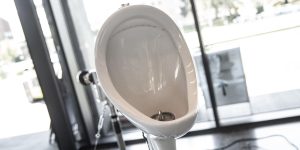
Elsa On The Moon
Mathieu Zurstrassen (BE)
Elsa on the Moon is a kinetic sculpture tribute to Elsa Von Freytag Loringhoven, eccentric baroness and contemporary of Marcel Duchamp; ambiguously attributed with the creation Fountain, in 1917. Or was it Louise Norton? The work consists of a robotic leg capped with a ceramic urinal. The device is balanced with counterweights through an extended aluminum arm.
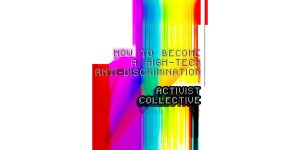
Nushin Isabelle Yazdani und Internet Teapot (Karla Zavala und Adriaan Odendaal): [d/r]econstructing AI - dreams of visionary fiction and zine-making
How to Become a High-Tech-Anti-Discrimination Activist Collective
With this workshop we investigate the structures behind algorithmic decision making systems, discuss why their design is normative, and how AI systems reinforce structural discrimination. We embark on a speculative journey and discuss how to design to create a more just world. Which artists inspire us? Which values are important to us? We want to collect our thoughts and creative outputs in a zine.

LAB ON STAGE (Adriana Torres Topaga, Martyna Lorenc and Andrea Maria Handler): Phantom Data in our bodies and imagination
How to Become a High-Tech-Anti-Discrimination Activist Collective
This workshop undertakes a performing arts’ approach. Our departure is the embodiment of imagination and perceptual processes. With somatic exercises and performative games, we notice the data flowing in from our bodies: sensation, image, emotion or memory. Imagination has its own training dataset - therefore a specific priming/bias/imprint. We look for practices of becoming aware of HOW we imagine things and what escapes our field of attention.

Astrid Mager und Hong Phuc Dang: How to create your own AI device with SUSI.AI - An Open Source Platform for Conversational Web
How to Become a High-Tech Anti-Discrimination Activist Collective
The workshop introduces SUSI components like SUSI’s technology stack, its wiki-like skill editor and hardware prototype; participants work together to create a simple bot, develop new skills and test them. A reflection on data bias and algorithmic discrimination invites to collectively think about creating non-discriminatory digital technologies.

Doris Allhutter: “When I encountered discriminating IT-systems and did not want to take it anymore” - deconstructing affective entanglements in society-technology relations
How to Become a High-Tech Anti-Discrimination Activist Collective
This workshop uses the deconstructive method of mind scripting to understand the grip that even technologies that we reject may have on us. Using our own memories as an experimental resource we will explore how discrimination and privilege materialize in our practices. This aims at developing collective agency and activisms.

Safiya Umoja Noble: Algorithms of Oppression - How Search Engines Reinforce Racism
How to Become a High-Tech Anti-Discrimination Activist Collective
The landscape of information is rapidly shifting as new demands are increasing investment in digital technologies. Yet, critical scholars continue to demonstrate how many technologies are shaped by and infused with values that are not impartial, disembodied, or lacking positionality. Technologies hold racial, gender, and class politics. In this talk, Dr. Safiya Noble will discuss her recent book, Algorithms of Oppression, and the impact of technology on the public.

Lisa Nakamura: Estranging Digital Racial Terrorism After COVID
How to Become a High-Tech Anti-Discrimination Activist Collective
This talk argues that COVID-19 forced an accelerated migration to digital networks that exposed new audiences to traumatically racist digital events as well as new openings for critique and resistance.
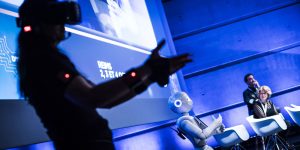
The Woman-Machine
le lieu unique (FR)
The Woman-Machine is a two-day event on the main stage of le lieu unique. In response to La Mettrie (and Kraftwerk) le lieu unique invites artists, scientists and performers to discuss the relationship between AIs and gender, robots and feminism, machine learning and the world after the pandemic.

How to Become a High-Tech Anti-Discrimination Activist Collective
IFG-LIT (AT)
New technologies have penetrated all aspects of our lives and promise a wide range of improvements and efficiencies. Contrary to general perception, though, the algorithms on which these technologies are based are neither neutral nor do they treat everyone equally.
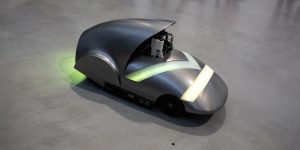
K – JKU’s Interactive Robocar
Institute for Machine Learning, LIT AI Lab, LIT Robopsychology Lab, Johannes Kepler University (AT); Inseq Design (AT)
K is a likeable little robocar: small in size, but very smart on board! Named after JKU’s famous patron, Johannes Kepler, it drives itself autonomously on changing terrain, can predict the movement patterns of pedestrians and playfully interacts with its environment.
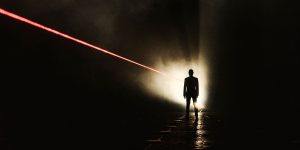
The Experimenta Garden - A Drone Opera (2015 – 2020)
Experimenta (AU)
The Experimenta Garden features the multi-platform work A Drone Opera (2015 – 2020)
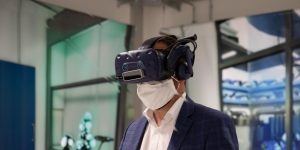
Robots Talking To Me
LIT Robopsychology Lab, Johannes Kepler University (AT)
How should robots communicate with people? What voice makes AI assistants sound trustworthy? Do we even have to listen to robots or should we always be in command ourselves? Under the title *Robots Talking to Me*, the *LIT Robopsychology Lab* presents four installations that give tangible expression to questions of human-machine relationships and invite participation.
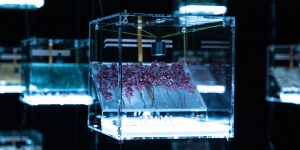
The Transparency of Randomness
Mathias Gartner (AT), Vera Tolazzi (AT)
"The Transparency of Randomness" is an interactive installation that provides insight into the world of randomness. Random numbers are continuously generated through a transparent dice system, to be used as the basis for real-time calculations and visualizations. Through its use of diverse materials, the process is influenced by the complexity of nature.
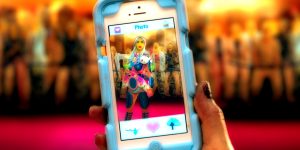
Thoma Foundation’s pioneering Digital & Electronic Art collection
Carl & Marilynn Thoma Art Foundation, Santa Fe, New Mexico (US)
The Thoma Foundation’s Curator of Digital Art, Jason Foumberg, leads a behind-the-scenes video tour through the Foundation’s Digital & Electronic Art collection, offering personal anecdotes about the artworks that excite him, how the Foundation decides which artworks to collect, and a peek into our public exhibition space and private art storage vault. Foumberg’s lushly illustrated talk is organized around the Ars Electronica 2020 festival theme of Autonomy, especially spotlighting digital artists who use technology to automate creative labor and increase viewer interaction.


